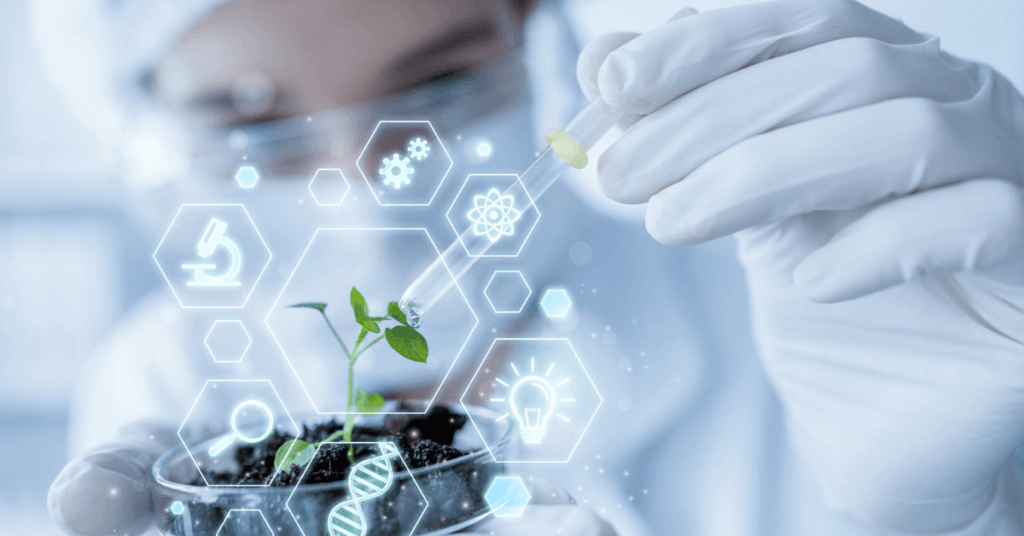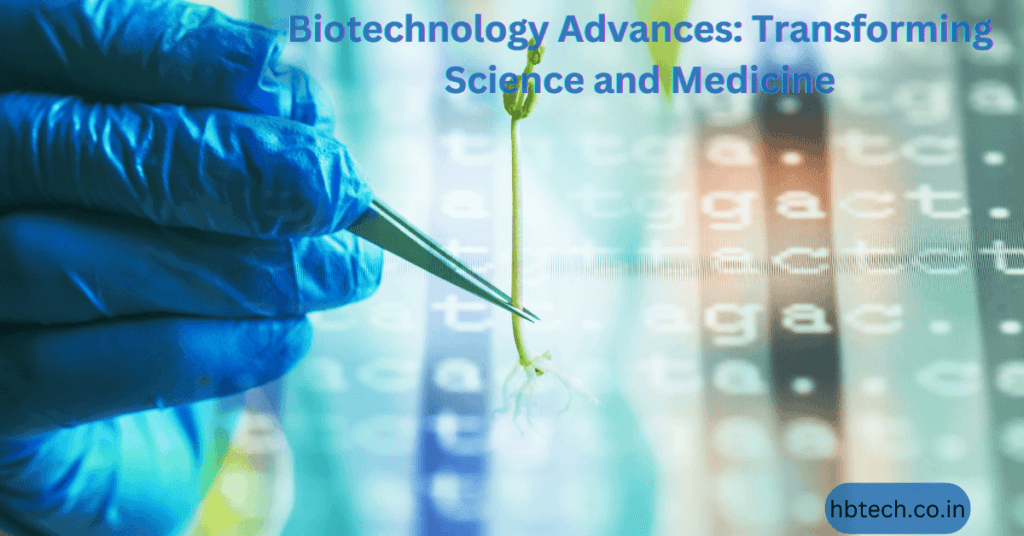
Biotechnology is an exciting field that ’s making big changes in healthcare, agriculture. and more. From fighting diseases to creating eco-friendly materials, recent advances in biotechnology are helping solve some of the world’s biggest challenges. Let’s explore some of the key innovations and how they’re transforming our lives.
CRISPR Gene Editing
CRISPR is a cutting-edge tool that allows scientists to edit DNA with incredible precision. It ’s being used to treat genetic diseases, improve crop resilience, and even fight cancer.
For example, researchers are working on CRISPR-based treatments for conditions like sickle cell anemia and genetic blindness. In agriculture, this technology helps create plants that are more resistant to pests and can grow in harsh environments.
Cell Therapy
Cell therapy is a revolutionary treatment where living cells are used to repair or replace damaged tissue. A great example is CAR-T therapy, which reprograms a patient’s immune cells to target and destroy cancer.
But it doesn’t stop there. Scientists are exploring cell therapy for treating autoimmune diseases, heart conditions, and neurological disorders like Parkinson ’s. This personalized approach offers hope for conditions that were once thought untreatable.
Synthetic Biology
Synthetic biology combines biology and engineering to design new biological systems or improve existing ones. It’s helping create lab-grown meat, sustainable biofuels. and even microbes that produce valuable materials like medicine or biodegradable plastics.
One cool application is using engineered yeast to produce cannabinoids for medical treatments. Synthetic biology is also key in creating eco-friendly alternatives to traditional plastics, reducing our reliance on fossil fuels.
Personalized Medicine
Personalized medicine focuses on tailoring treatments to individual patients based on their genetics, lifestyle, and environment. Advances in genomics are making it easier to develop treatments that work better and have fewer side effects.
For example, genetic testing can help doctors choose the most effective medications for patients. In cancer care , personalized therapies target specific genetic mutations, improving outcomes and saving lives.
Bioprinting
Bioprinting uses 3D printing technology to create living tissues and organs . This innovation could solve the organ donor shortage by making custom-made organs for transplants.
It’s not just about organs—bioprinting is being used to create tissues for drug testing, reducing the need for animal testing. Scientists are also working on bioprinted skin for burn victims and cartilage for repairing joints.
Regenerative Medicine
Regenerative medicine focuses on healing or replacing damaged tissues and organs. This includes using stem cells and engineered tissues to restore function in the body.
For instance, stem cell treatments are being tested for spinal cord injuries and diabetes. Researchers are also working on regenerating heart tissue for people who ’ve had heart attacks, potentially eliminating the need for transplants.
Biopharmaceutical Innovations
The biopharmaceutical industry is using biotechnology to create advanced drugs and vaccines. Recent innovations, like mRNA vaccines, have revolutionized how diseases are prevented and treated.
The rapid development of COVID-19 vaccines showed the power of this technology. Now, researchers are exploring mRNA treatments for cancer, HIV. and other diseases. These advancements are opening doors to more effective and accessible healthcare solutions.
Next for Biotechnology
Biotechnology is moving fast, with new breakthroughs happening every day. From better healthcare to sustainable solutions for the planet, the potential is endless. However , these advancements also come with challenges, like ethical concerns and the need for careful regulation.
As this field grows, collaboration between scientists, policymakers, and the public will be crucial to ensure its benefits reach everyone while addressing potential risks.
Frequently Asked Questions(FAQs)
What is biotechnology?
Biotechnology is the use of biological systems, organisms, or processes to create products or solve problems in areas like healthcare, agriculture, and the environment.
How does CRISPR gene editing work?
CRISPR is a gene-editing technology that allows scientists to make precise changes to DNA. It’s used to treat genetic diseases, improve crops, and even combat conditions like cancer.
What is cell therapy, and what is it used for?
Cell therapy involves using living cells to repair or replace damaged tissues. It’s commonly used for treating cancers (like CAR-T therapy) and is being explored for conditions such as autoimmune disorders and heart diseases.
How is biotechnology addressing environmental challenges?
Biotechnology is helping create eco-friendly alternatives like biodegradable plastics and sustainable biofuels. Synthetic biology is also being used to engineer microbes that can clean up pollution or produce renewable materials.
What ethical concerns are associated with biotechnology?
Biotechnology raises ethical questions, such as the implications of gene editing, privacy concerns in personalized medicine, and the potential misuse of advanced biotechnologies. Careful regulation and open dialogue are essential to address these issues.
Related Posts
- 2-in-1 Laptops: Tablets and Laptops in One
- 5G Technology: What It Is, It Works and Impact on Our Lives
- 8K Gaming on a Laptop: Is It Worth It?
- A Simple Guide to Remote Work: Work from Anywhere, Anytime
- A Visit to the Museum of Jurassic Technology
- Affordable AI Solutions for Small Businesses









